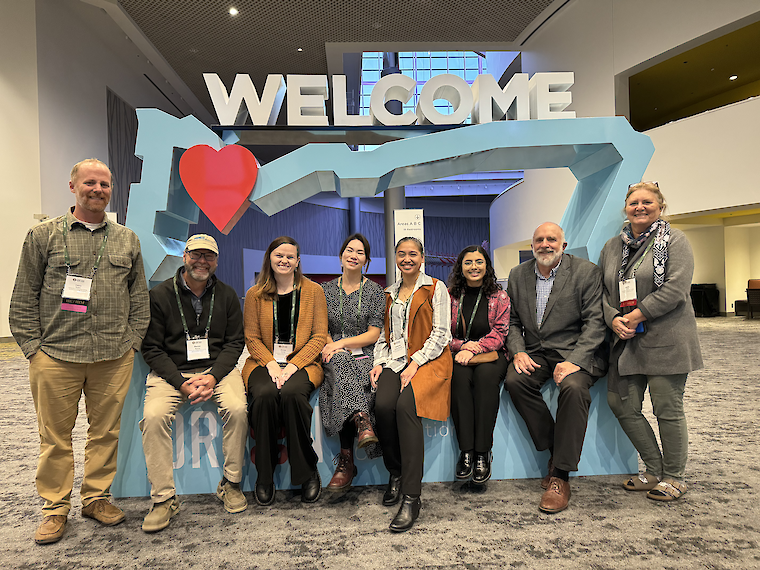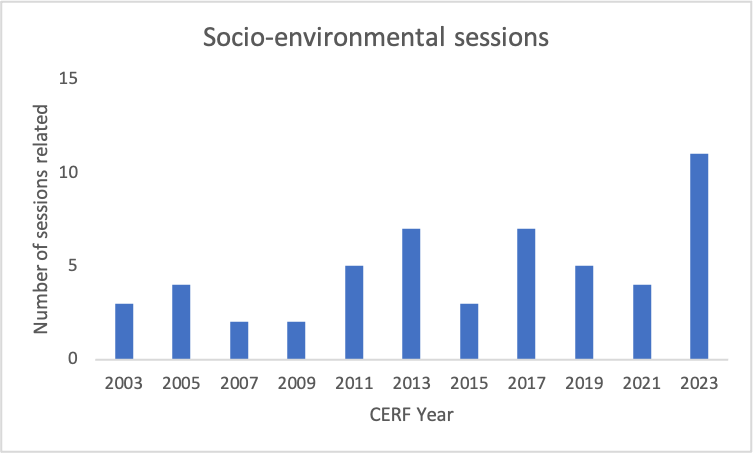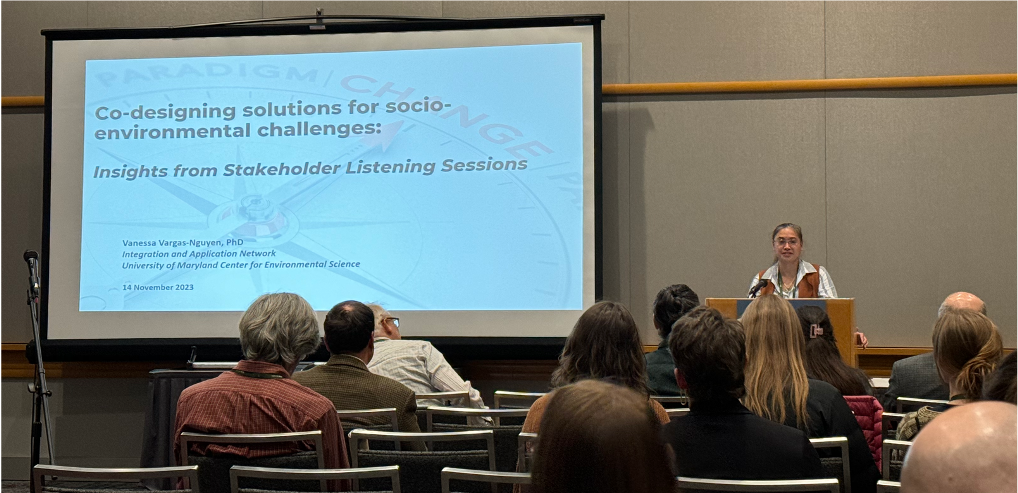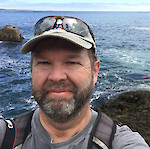CERF Conference in Portland Oregon
Heath Kelsey ·UMCES and IAN had a great presence at the CERF Conference in Portland Oregon earlier this month! I was happy to observe that the number of sessions and presentations that focused on co-production and transdisciplinary science seems to have increased. I counted 11 sessions that touched on these themes in the 2023 conference program.
I’ve been attending CERF meetings for over 20 years now, and, looking back, I thought that this must be a dramatic increase. In the past, I’ve sometimes felt that our (IAN’s) attention to these topics was a bit unusual in the coastal research community, so I took notice when I saw the session titles in the program!

To check my perception, I went back to review all the previous CERF conference programs that were available on-line (https://www.cerf.science/past-cerf-conferences). I counted the sessions that, from their titles, were somehow related to transdisciplinarity, co-production, socio-environmental systems, community engagement, or traditional ecological knowledge. My methods were very subjective, but the results were interesting. The number of sessions related to these topics was varied, and ranged from 2 in 2007 and 2009 to 11 in 2023.

I was not surprised by the high number in 2023 – that fits with my perception, and is what got me thinking about this to begin with. However, I was surprised that there were as many related sessions in previous CERF Conferences, including some in 2003 - so these ideas were recognized a 20 years ago! However, the focus seems to have shifted: The sessions in past conferences touched on these topics in a more tangential way than currently. For example, the three sessions in 2003 that touched on these topics were titled, “Ecological and Societal Values of Estuarine Habitats” (focusing on ecosystem services valuation), “Historic and Current Use and Management of Estuarine Environments by Indigenous and Pre-Industrial People in Pacific Rim Nations” (a historical look at past uses and practices), and “Sustainability Science and Estuarine Habitat Restoration: An International Perspective on Integrating Ecology and the Social Sciences” (the most directly related session).
Contrast that with the sessions in 2023, titled, “Weaving Traditional Ecological Knowledge (TEK) and Coastal Science for Management Application,” “Not Just Checking a Box: Inclusive Communication as a Tool to Engage in Resiliency,” “Transdisciplinary Approaches to Support Coastal Community Resilience: Interactions Between Natural, Human-Built, and Social Systems” (convened by UMCES’ own Bill Dennison and IAN’s Vanessa Vargas-Nguyen!), and “Coastal Adaptation and Climate Preparedness in Human and Natural Communities” (convened by IAN’s own Annie Carew!) and 7 more sessions by my count. To me, the difference is in focus: the sessions in earlier years focus mostly on societal values of ecosystem services, while the 2023 sessions are about inclusion, holistic approaches, and integration of different knowledge systems.

So, not only is the number of sessions that include these types of topics increasing, the focus seems to be much more explicitly on inclusion of multiple perspectives and knowledge sources in coastal research. From my perspective, this is a great advance for the coastal research community, and I’m proud to think about UMCES’ participation in this apparent transition: we have been championing these approaches for years, and it’s fantastic to see these themes being more widely used!
About the author
Heath Kelsey

Heath Kelsey has been with IAN since 2009, as a Science Integrator, Program Manager, and as Director since 2019. His work focuses on helping communities become more engaged in socio-environmental decision making. He has over 10-years of experience in stakeholder engagement, environmental and public health assessment, indicator development, and science communication. He has led numerous ecosystem health and socio-environmental health report card projects globally, in Australia, India, the South Pacific, Africa, and throughout the US. Dr. Kelsey received his MSPH (2000) and PhD (2006) from The University of South Carolina Arnold School of Public Health. He is a graduate of St Mary’s College of Maryland (1988). He was also a Peace Corps Volunteer in Papua New Guinea from 1995-1998.
Next Post > UMCES reception at the Coastal Estuarine Research Federation conference
Comments
-
Atika 4 months ago
Thank you for sharing this great information with us, i really appreciate your post!